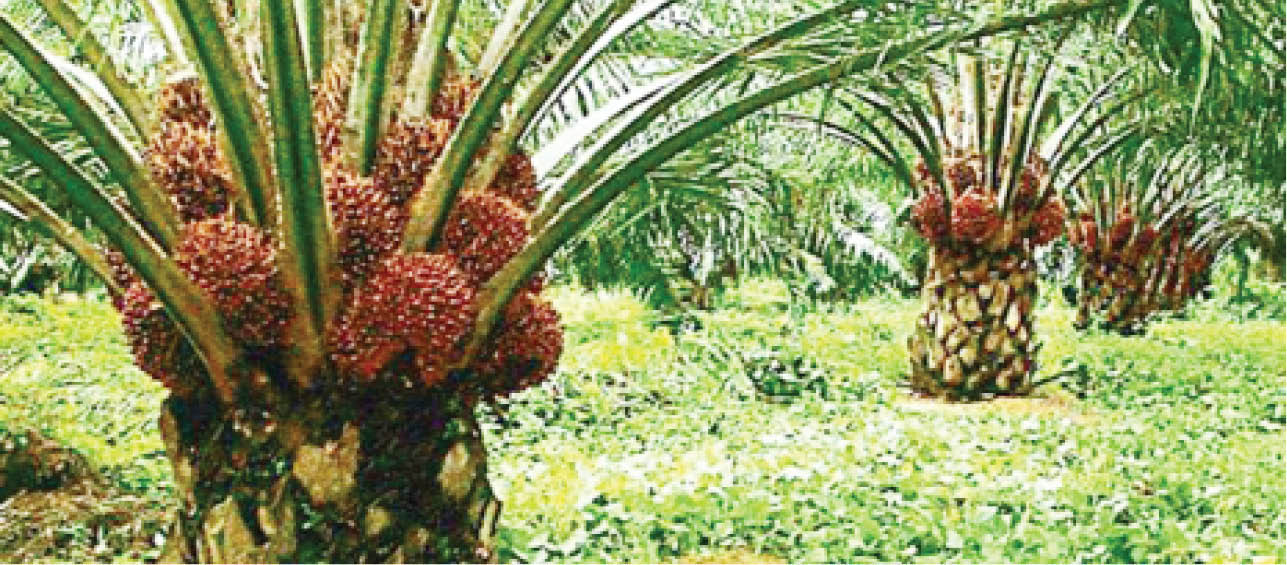654 oil palm stakeholders equipped on sustainable production principles
Over 654 stakeholders in the oil palm sub-sector of the agricultural sector have benefitted from the Roundtable on Sustainable Palm Oil (RSPO) training in the South- South geopolitical zone and Abuja. The training was facilitated by Foremost Development Services Limited (FDS), an intermediary organization for the Roundtable on Sustainable Palm Oil in the nation’s oil […]

Over 654 stakeholders in the oil palm sub-sector of the agricultural sector have benefitted from the Roundtable on Sustainable Palm Oil (RSPO) training in the South- South geopolitical zone and Abuja.
The training was facilitated by Foremost Development Services Limited (FDS), an intermediary organization for the Roundtable on Sustainable Palm Oil in the nation’s oil palm industry.
The managing consultant and chief executive officer (FDS), Fatai Afolabi, disclosed this at a one-day Community Outreach and Engagement Programme (COEP) for palm oil stakeholders from Cross River, Rivers, Bayelsa, Delta, Edo states, among others.
He said a total of 407 stakeholders were trained during the first engagement programme, which focused on RSPO principles and Criteria 2018, held between February 2023 and July 2023.
- Why farmers should ignore deceit on GM crops – Rose Gidado
- NIFOR trains farmers on best practice in Edo
“The community outreach programme was designed by RSPO to serve as an interface between the oil palm communities and oil palm companies and growers.”
He said the beneficiaries drawn from local communities include elders, women, youths, community-based organizations and oil palm smallholder farmers, government agencies and oil palm growers.
“Others beneficiaries are NGOs into environmental and social advocacy, civil society organizations, media and financial institutions.”
“In the second engagement which was on grievance and dispute resolution mechanism, held between September 2023 and February 2024, a total of 514 participants attended the programme, with 278 of them participating in both trainings.”
He said COEP was designed by RSPO as an interface between the communities and oil palm stakeholders for the communities to know what RSPO stands for and the interest of RSPO in making sustainable oil palm the norm the world over
“Oil palm is produced mostly by smallholder farmers, but the landscape is changing with the arrival of large-scale oil palm plantations in Nigeria through investments made by companies producing thousands of tons of crude palm oil across several thousand hectares of land.
He explained that the first module exposed the stakeholders to the principles and criteria of RSPO while the just concluded second module focused on grievance and dispute resolution in order to pave the way for mutual understanding among all the stakeholders including the smallholder farmers, communities and owners of big plantations.
Earlier, a facilitator, Ahmed Olanigan, said the purpose of RSPO was to combat the negative impact of forest conversion, deforestation as well as conversion of HCV and biodiversity loss.
He explained that the development of new plantations has resulted in land ownership conflicts and accusations of land grabbing, displaced communities and infraction of workers’ rights.
“The development of new plantations has resulted in land ownership conflicts and accusations of land grab, displaced communities and infraction of workers’ rights and their working conditions,” Olanigan said.
Also speaking, Makinde Abiodun said that the RSPO’s grievance and dispute resolution mechanism is fair, transparent and impartial to duly handle and address the complaints emanating against RSPO members.
“The system ensures that any breaches of specific RSPO key documents, including statutes, by-laws, code of conduct, principles and criteria for sustainable palm oil production, and certification system, among others are fairly, impartially and transparently resolved,” he added.
He however listed the RSPO dispute resolution system to include RSPO Complaints and Appeal Procedure (CAP), and RSPO Dispute Settlement Facility (DSF).
